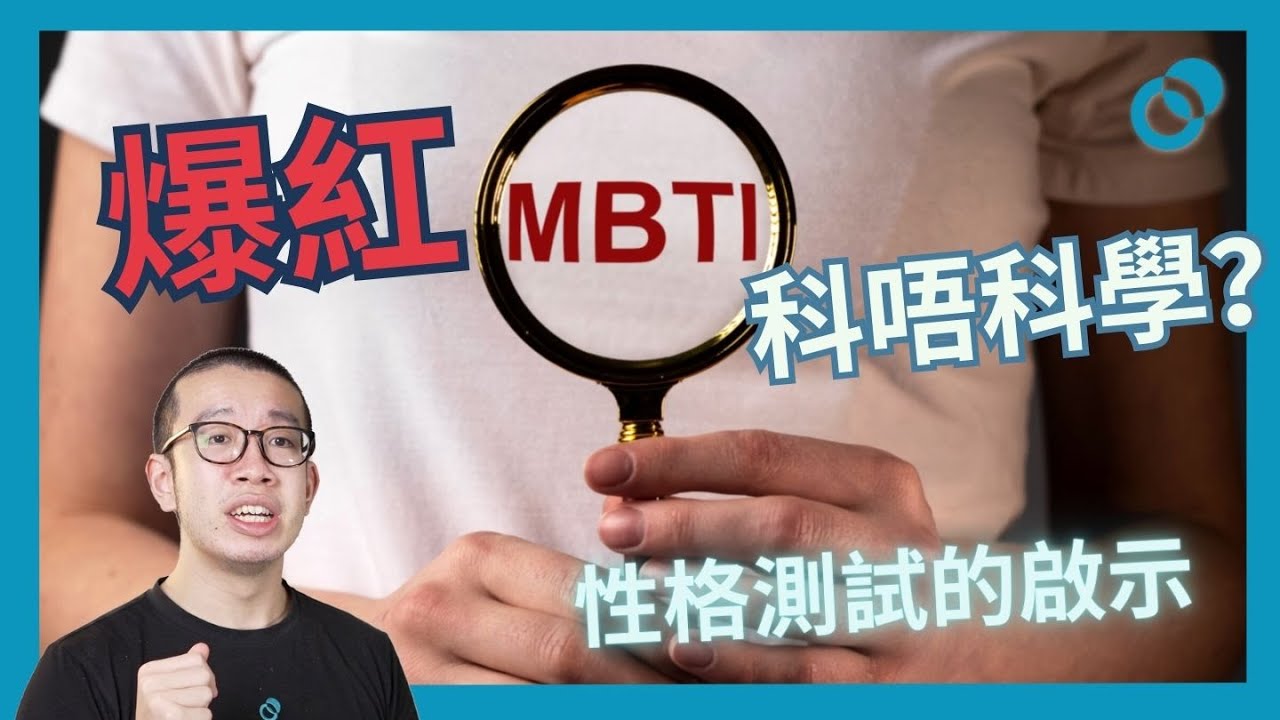多數人用錯 MBTI?8分鐘迷思快問快答|Sherry's Notes 雪力的心理學筆記 #MBTI #迷思 #心理學
Summary
TLDRThe video script features an MBTI-focused Q&A session with a teacher addressing common misconceptions about personality types. It emphasizes that MBTI is a psychological assessment tool with four dichotomies, not a justification for behavior. The teacher advises against using MBTI for hiring decisions due to its inability to measure skills. The script also discusses the importance of official MBTI assessments to avoid self-misinterpretation and the concept of 'Best-Fit Type' for a more personalized understanding of one's personality.
Takeaways
- 😀 MBTI is a psychological assessment that categorizes thinking patterns into 16 types using four dichotomous dimensions.
- 🤔 The misconception that I (Introverted) individuals are all socially anxious and E (Extraverted) individuals are all talkative is debunked.
- 🗓️ Planning and organization are not exclusive to J (Judging) types; P (Perceiving) types can also be trained to be organized, albeit with more effort.
- 🤨 The difficulty in getting along with TJ (Thinking and Judging) types is subjective and varies based on personal experiences.
- 🚫 MBTI should not be used as an excuse for behavior or to justify one's actions, as the goal is self-improvement and maturity, not rationalization.
- 🧠 Understanding one's MBTI can help identify their most comfortable thinking patterns, but it does not determine one's abilities or skills.
- 🎹 MBTI is not a reliable basis for talent selection as it does not reflect actual skills or competencies, which can vary widely among individuals with the same MBTI type.
- 🔍 The MBTI type can seem to fluctuate due to misunderstandings or changes in mood or behavior, but the underlying type remains consistent.
- 🏷️ The terms like 'Mediator', 'Commander', and 'Architect' are from the 16Personalities website and do not represent the official MBTI.
- 📚 The 'Best-Fit Type' concept suggests that among the 16 MBTI types, individuals should identify the one that best fits their thinking patterns, as no single type can fully capture a person's essence.
Q & A
What is the common misconception about I (Introverted) and E (Extroverted) types in MBTI?
-The misconception is that all I types are socially anxious and all E types love to talk. However, the truth is that I types are not necessarily socially anxious and E types are not always talkative; it's more about where they draw their energy from.
Does being organized in tasks necessarily mean someone is a J (Judging) type in MBTI?
-No, P (Perceiving) types can also be organized. They might be trained or self-train to become more structured, although it may be relatively more challenging for them.
Are TJ (Thinking and Judging) types generally difficult to get along with?
-It varies from person to person. The speaker's experience suggests that TJ types might be perceived as more difficult to interact with, but this is subjective and not a rule.
Can people use their MBTI type as an excuse for their behavior?
-While some people might use their MBTI type to justify their behavior, it's advised against as the goal should be personal growth rather than rationalization.
What is MBTI and how does it categorize people?
-MBTI is a psychological assessment tool that categorizes people into 16 types based on four dichotomous dimensions, helping individuals understand their natural and comfortable thinking patterns.
Why shouldn't MBTI be used as the sole basis for talent selection?
-MBTI doesn't indicate one's abilities. For example, two people with the same MBTI type but different levels of practice or experience will have different skills, and many work-related skills are not directly related to MBTI.
Why did the speaker request not to include MBTI in resumes during recruitment?
-The speaker is unsure if the MBTI results are obtained through the correct process and is concerned about potential subconscious biases that could affect the recruitment process.
Why might someone's MBTI type seem to change over time?
-The MBTI type itself doesn't change; what may change are one's current state, mood, or behavior. The assessment is about the current self, not a fixed identity.
What are the terms 'Mediator', 'Commander', and 'Architect' in the context of MBTI?
-These are names given to specific MBTI types by the 16Personalities website, which is not strictly MBTI but rather based on the Big Five personality traits.
What is the purpose of the Best-Fit Type concept in MBTI?
-The Best-Fit Type concept acknowledges that no single MBTI type can fully capture the essence of an individual. It's about finding the type within the 16 that best fits one's natural thinking patterns.
How can one understand their MBTI's first to fourth functions?
-Understanding these functions can be achieved through official MBTI training or by studying the theory, and there are specific methods taught to deduce one's cognitive functions.
Why is it recommended to use official MBTI assessments instead of self-assessment?
-Official assessments have established reliability and validity backed by extensive research. They help to minimize self-misjudgment and biases, providing a more accurate understanding of one's type.
Outlines

This section is available to paid users only. Please upgrade to access this part.
Upgrade NowMindmap

This section is available to paid users only. Please upgrade to access this part.
Upgrade NowKeywords

This section is available to paid users only. Please upgrade to access this part.
Upgrade NowHighlights

This section is available to paid users only. Please upgrade to access this part.
Upgrade NowTranscripts

This section is available to paid users only. Please upgrade to access this part.
Upgrade Now5.0 / 5 (0 votes)





